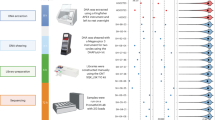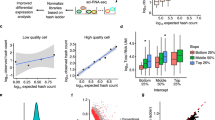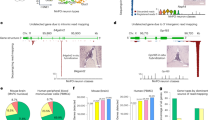Abstract
A feature common to all DNA sequencing technologies is the presence of base-call errors in the sequenced reads. The implications of such errors are application specific, ranging from minor informatics nuisances to major problems affecting biological inferences. Recently developed “next-gen” sequencing technologies have greatly reduced the cost of sequencing, but have been shown to be more error prone than previous technologies. Both position specific (depending on the location in the read) and sequence specific (depending on the sequence in the read) errors have been identified in Illumina and Life Technology sequencing platforms. We describe a new type of systematic error that manifests as statistically unlikely accumulations of errors at specific genome (or transcriptome) locations. We characterize and describe systematic errors using overlapping paired reads form high-coverage data. We show that such errors occur in approximately 1 in 1000 base pairs, and that quality scores at systematic error sites do not account for the extent of errors. We identify motifs that are frequent at systematic error sites, and describe a classifier that distinguishes heterozygous sites from systematic error. Our classifier is designed to accommodate data from experiments in which the allele frequencies at heterozygous sites are not necessarily 0.5 (such as in the case of RNA-Seq). Systematic errors can easily be mistaken for heterozygous sites in individuals, or for SNPs in population analyses. Systematic errors are particularly problematic in low coverage experiments, or in estimates of allele-specific expression from RNA-Seq data. Our characterization of systematic error has allowed us to develop a program, called SysCall, for identifying and correcting such errors. We conclude that correction of systematic errors is important to consider in the design and interpretation of high-throughput sequencing experiments.
Similar content being viewed by others
Article PDF
Author information
Authors and Affiliations
Rights and permissions
About this article
Cite this article
Meacham, F., Boffelli, D., Dhahbi, J. et al. Identification and correction of systematic error in high-throughput sequence data. Nat Prec (2011). https://doi.org/10.1038/npre.2011.5989.1
Received:
Accepted:
Published:
DOI: https://doi.org/10.1038/npre.2011.5989.1



